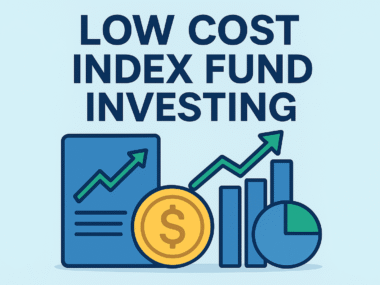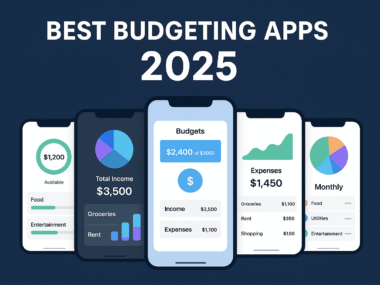Small Business Loan Canada
Introduction
Running a small business in Canada today comes with both opportunities and challenges. While technology, digital commerce, and government initiatives have opened doors for entrepreneurs, rising costs of equipment, labor, marketing, and daily operations have made financing one of the biggest hurdles for business owners. Small Business Loan Canada The reality is that many startups and small businesses struggle with limited cash flow, making it difficult to expand or even sustain operations. Guaranteed Loan Approval Canada
This is where small business loans in Canada play a critical role. They provide access to funds that help entrepreneurs cover expenses, invest in new tools, hire staff, and grow their business strategically. Without financing, even the most promising businesses may remain stagnant or fail to reach their potential.
For Canadian entrepreneurs, finding the right loan is not just about borrowing money — it’s about unlocking opportunities, managing risks, and securing the long-term health of their business. This guide explores everything you need to know about small business loans in Canada, from loan types and lenders to application requirements and benefits. Instant Personal Loan Nigeria
What is a Small Business Loan in Canada?
A small business loan in Canada is a type of financing provided by banks, credit unions, government programs, or alternative lenders to help small businesses fund their operations or growth. These loans can serve different purposes — from purchasing equipment to covering payroll or launching a new product line. Low Interest Personal Loans USA
Financial reasons: Businesses often require additional capital to manage cash flow gaps, cover unexpected expenses, or fund expansion.
Legal reasons: Some industries in Canada require financial compliance and documented funding sources, which formal loans help provide.
Business growth reasons: Loans give entrepreneurs the ability to scale, hire staff, expand locations, and access new markets that would otherwise be out of reach without financing.
How Do Small Business Loans Work in Canada?
Small business loans in Canada operate in several forms, depending on the lender and borrower’s needs. Typically, a lender provides a lump sum or line of credit, which the business must repay over a set period with interest. Fast Approval Bad Credit Loans Canada
-
For startups: Many new businesses struggle with little or no credit history. Lenders often evaluate the business plan, personal credit score, and projected revenue before offering funding.
-
For first-time business owners: Banks and credit unions may require collateral or a guarantor if the borrower has limited experience. Government-backed programs like the Canada Small Business Financing Program (CSBFP) provide safer entry points.
-
For established businesses: Lenders focus on cash flow statements, existing debts, and credit history. Established businesses often qualify for higher amounts at lower interest rates. Bad Credit Personal Loans Canada
-
For online/digital entrepreneurs: Alternative lenders and fintech platforms offer fast, flexible loans, often with higher interest rates but less strict approval requirements.
In essence, the loan process involves application, lender evaluation, approval, and repayment — but terms vary widely across Canada.
How Much Can You Borrow with a Small Business Loan in Canada?
The borrowing amount depends on the lender, loan type, and the applicant’s financial strength.
-
Government programs (CSBFP): Up to $1 million, with $350,000 dedicated to equipment and leasehold improvements. personal loan without collateral in nigeria
-
Banks and credit unions: Range from $5,000 to $500,000+, depending on collateral and revenue.
-
Alternative lenders: Typically $5,000 to $300,000, with faster approvals but higher interest rates.
Lenders assess risk before granting amounts, meaning businesses with solid financial records can access larger sums.
Types of Small Business Loans in Canada
Canadian entrepreneurs have access to a variety of financing options:
-
Term Loans – Fixed lump sum repaid over time, ideal for long-term investments.
-
Business Line of Credit – Flexible, revolving credit limit, used when needed.
-
Government-Backed Loans (CSBFP) – Shared risk between government and lenders, easier access for small businesses. Best Personal Finance Software
-
Equipment Financing – Funds specifically for purchasing machinery or technology.
-
Merchant Cash Advances – Borrowing against future sales; quick but expensive.
-
Invoice Factoring – Selling unpaid invoices to access immediate cash.
-
Microloans – Smaller loans (under $50,000), often for startups or home-based businesses.
Top Banks and Lenders Offering Small Business Loans in Canada
-
Royal Bank of Canada (RBC) – Flexible term loans, business lines of credit, and government-backed programs.
-
Toronto-Dominion Bank (TD Canada Trust) – Offers commercial lending and business credit cards.
-
Bank of Montreal (BMO) – Known for competitive small business lending rates. First-Time Homebuyer Loan Programs
-
Canadian Imperial Bank of Commerce (CIBC) – Tailored solutions for startups and SMEs.
-
Scotiabank – Provides government-backed loans and flexible financing.
-
Desjardins Group – Popular among Quebec-based entrepreneurs.
-
Online Lenders (e.g., OnDeck, Thinking Capital, Clearco) – Quick approvals, digital applications, higher interest rates.
What’s Typically Covered by Small Business Loans?
-
Purchase of equipment and technology
-
Leasehold improvements
-
Working capital (payroll, rent, utilities)
-
Inventory and supply purchases
-
Marketing and advertising campaigns ETF investing
-
Expansion projects (new locations, renovations)
What’s Not Covered by Small Business Loans?
-
Personal expenses unrelated to the business
-
Illegal or high-risk ventures
-
Debt consolidation of personal loans
-
Non-business-related property investments
Average Interest Rates and Repayment Terms for Small Business Loans in Canada
-
Banks and credit unions: 3% – 10% annually (secured loans)
-
Government-backed programs: 5% – 12%
-
Alternative lenders: 10% – 30% depending on risk How to Save Money Fast
Repayment terms typically range from 1 to 10 years, depending on loan type and lender policies.
Benefits of Getting a Small Business Loan in Canada
-
Improved cash flow and operational stability
-
Ability to expand and scale operations
-
Build business credit for future financing
-
Flexible loan structures for different needs
-
Opportunity to take advantage of market growth
Challenges of Securing a Small Business Loan in Canada
-
Strict credit score requirements from banks
-
Higher interest rates for startups or bad credit borrowers. Cheapest Auto Insurance
-
Collateral requirements for larger loans
-
Lengthy approval times for traditional financing
Is a Government-Backed Loan (CSBFP) Worth It?
Yes, for many businesses. The Canada Small Business Financing Program (CSBFP) reduces lender risk by sharing it with the government, making it easier for small businesses to secure loans. However, it may involve stricter eligibility requirements and paperwork.
Application Requirements and Documents
-
Valid business registration/incorporation documents
-
Business plan with financial projections
-
Credit report (personal and business)
-
Financial statements (income, cash flow, balance sheet)
-
Proof of revenue (bank statements, sales reports). Personal Loan vs Home Equity Loan
-
Identification (driver’s license, passport, etc.)
-
Collateral documentation (if required)
Top Regions in Canada with the Most Affordable Small Business Financing
-
Ontario – High lender availability and government support.
-
British Columbia – Strong startup ecosystem and fintech lenders.
-
Alberta – Competitive banking rates.
-
Quebec – Desjardins offers affordable community-focused lending.
-
Nova Scotia – Provincial grants and support programs.
-
Manitoba – Small but competitive financing environment.
-
Saskatchewan – Agriculture-focused business loans. Credit Score for Mortgage Approval
-
New Brunswick – Lower average loan amounts but accessible financing.
-
Prince Edward Island – Local development programs support SMEs.
-
Newfoundland and Labrador – Regional banks and federal support programs.
Revenue vs. Loan Repayment Comparison
| Province/Region | Avg Small Biz Annual Revenue | Avg Loan Repayment (Monthly) | Loan Affordability % |
|---|---|---|---|
| Ontario | $500,000 | $2,500 | 6% |
| Alberta | $450,000 | $2,300 | 6.1% |
| British Columbia | $420,000 | $2,400 | 6.8% |
| Quebec | $400,000 | $2,100 | 6.3% |
| Nova Scotia | $350,000 | $1,900 | 6.5% |
Step-by-Step Guide: How to Apply for a Small Business Loan in Canada
-
Research lenders – Compare banks, credit unions, and fintech lenders.
-
Check eligibility – Credit score, business history, revenue.
-
Prepare documents – Business plan, financial statements, ID.
-
Compare loan offers – Evaluate interest rates, repayment terms, fees.
-
Apply – Submit application online or in-branch. Best Personal Finance Software
-
Approval & funding – Upon review, receive funds in account.
-
Repayment – Track payments and manage cash flow effectively.
Websites and Tools to Find the Best Small Business Loans in Canada
-
Government of Canada CSBFP website
-
RBC, TD, BMO, CIBC, Scotiabank websites
-
Fintech lenders (OnDeck, Clearco, Thinking Capital)
-
Loan comparison tools (Ratehub.ca, Loans Canada, Finder.com/ca)
FAQs about Small Business Loans in Canada
1. Can I get a small business loan with bad credit?
Yes, but likely through alternative lenders with higher interest rates.
2. How fast can I get approved?
Banks may take weeks, but fintech lenders often approve within 24–48 hours.
3. Do I need collateral?
For large loans, yes. Smaller loans may be unsecured.
4. Are there loans for startups with no revenue?
Yes, government programs and microloans target startups.
5. What’s the best bank for small business loans in Canada?
RBC, TD, and BMO are often considered top choices, but it depends on your needs.
Conclusion: Finding the Right Small Business Loan in Canada
Securing a small business loan in Canada can be a game-changer for entrepreneurs. Whether you’re launching a startup, expanding operations, or simply managing day-to-day cash flow, financing options are available across banks, government programs, and fintech lenders.
The key is understanding your needs, preparing your documents, and comparing lenders to find the best fit. With careful planning and responsible borrowing, small business loans in Canada can empower entrepreneurs to thrive in an increasingly competitive economy.














